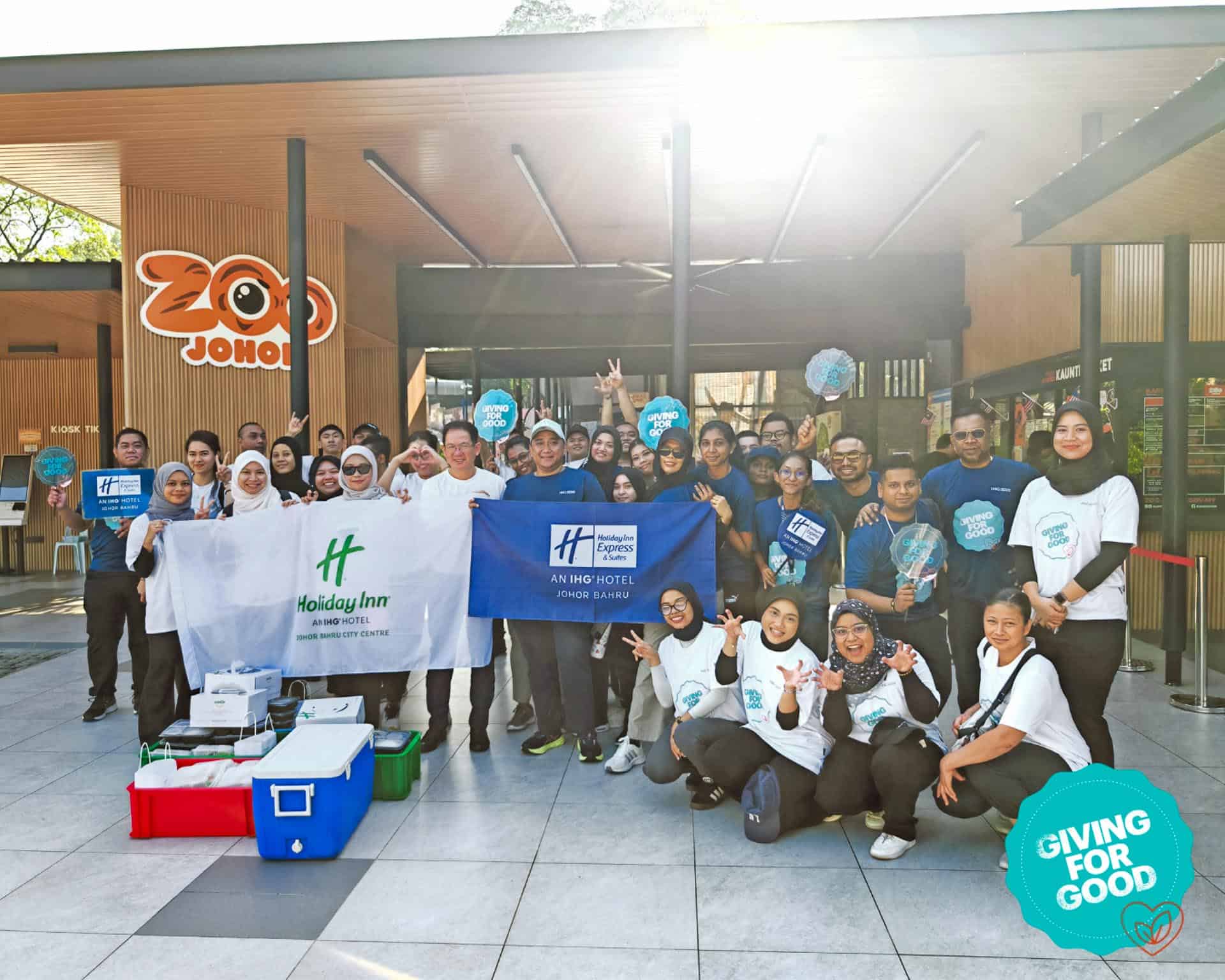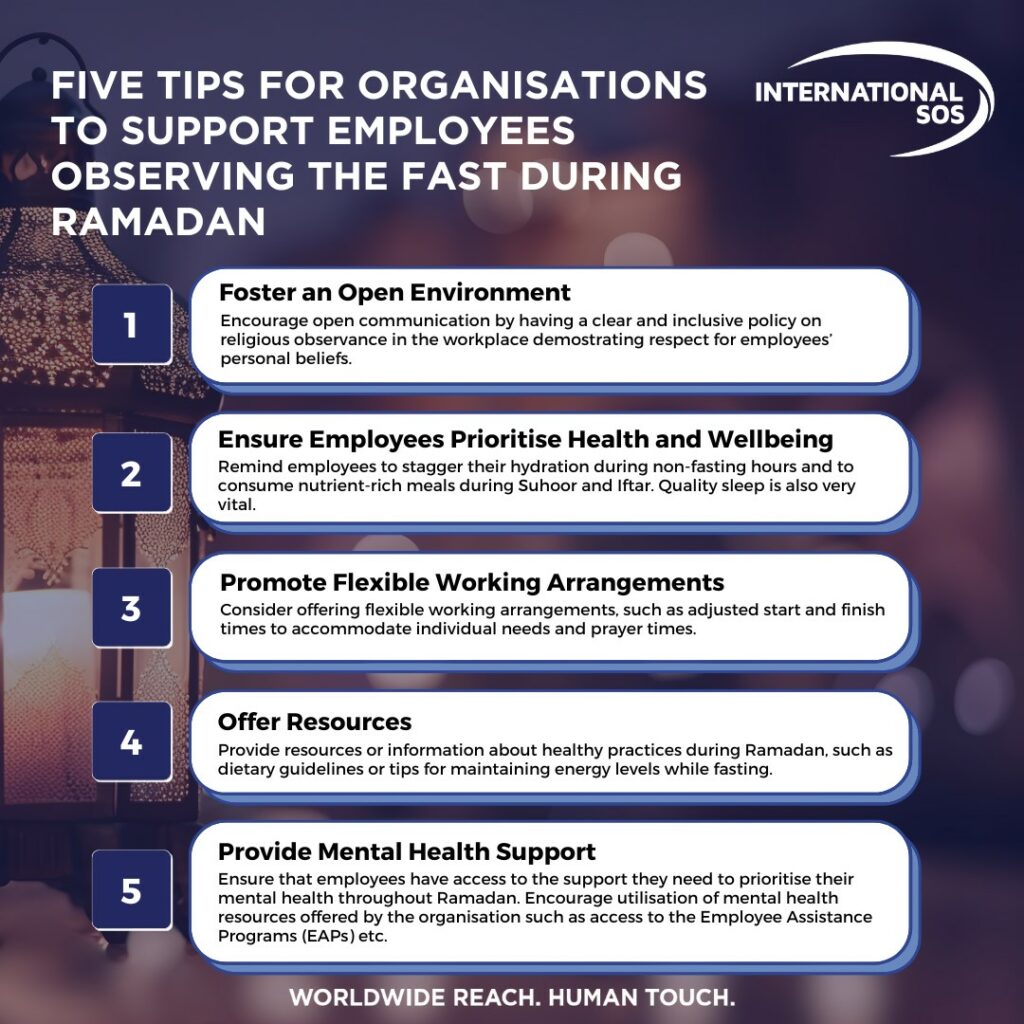

Kuala Lumpur, 12 March 2024 – As the holy month of Ramadan approaches, Muslims worldwide prepare for a journey of spiritual reflection and fasting. This year, Ramadan is expected to begin on or around 11 March. The exact start date will be based on the visibility of new crescent moon and will be confirmed closer to the expected start date. Fasting hours vary depending on location and will gradually increase throughout the month as the time to begin the fast (Imsak) and end it (Iftar) is directly connected to when the sun rises and sets, respectively. While this period offers deep personal growth, it is crucial to approach it with a focus on both physical and mental wellbeing as well. International SOS, the world’s leading provider of medical and security services, reminds everyone observing Ramadan to prioritise safety and health with expert advice and personalised support.
“This year, we want to emphasise the importance of prioritising mental health and wellbeing during Ramadan. During the holy month of Ramadan, while many find it a time for spiritual reflection and growth, it is important to acknowledge that the changes in routine and physical demands of fasting can impact on employees’ mental and physical wellbeing. Organisations can help employees navigate the month by safeguarding their health, wellbeing and fostering a more inclusive and understanding work environment.” says Dr Chan Yanjun, Medical Director, Singapore & Malaysia Assistance Centres.
Dr Chan elaborates, “Adequate hydration and a balanced diet during Sahur and Iftar are crucial. Prioritising sleep and ensuring a healthy balance between work, rest, and leisure activities are equally important practices for maintaining wellbeing during Ramadan.”
Noriko Takasaki, Security Director Assistance, Asia highlights the importance of staying safe during Ramadan: “The Islamic holy month of Ramadan is an important period for observant Muslims across the world. In many observing countries, local businesses and government offices adjust working hours for that period. Mobile workers and foreign residents should familiarise themselves with the cultural norms and practices in their location during Ramadan. For example, in some countries, even those who do not fast may be expected to also refrain from eating, drinking and smoking in public during daylight hours.
Noriko adds “Roads are likely to be particularly congested in the hour before the breaking of the fast. Meanwhile, attending public gatherings and celebrations, particularly during Eid al-Fitr, which marks the end of Ramadan and is a public holiday in many countries across the region, requires situational awareness and measures against petty crime.”
The end of Ramadan will be marked with a celebration of Eid al-Fitr, when Muslims typically attend their local mosque for Eid prayer in the early morning and host great feasts with their family and friends throughout the day.
International SOS’ top five tips for organisations to support employees observing the fast this Ramadan are:
To learn more on how we can support your global workforce, click here.